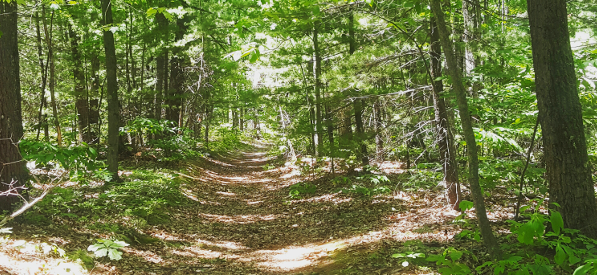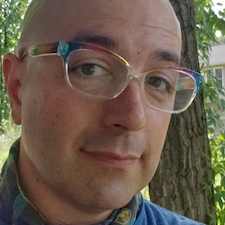Doing the work, never enough
My research framework is solar ecology https://solarecology.psu.edu, and it is entangled with settler colonial practices that continue to occur here at my institutions of study and work. I am working with our Solar Collaborative to reconfigure how we proceed in STEAM (Science Technology Engineering Arts Mathematics) from margin to center, as a feminist anti-colonial lab in academia.
I grew up in North Dakota. I benefited from scholarship in North Dakota, in Minnesota, and in Wisconsin on unceded lands, from the legacies of settler colonialism. I now work in central Pennsylvania, where so many traces of Native American life are both embedded around us while simultaneously being repeated erased and excluded from mattering.
I am also authoring a new book, about solar ecology and revolutions that light has delivered to us all through time. I cannot proceed without a deeper committment to disruption and my own solar revolution work. The people who will benefit most from a disruption of the stuff we just “do” today are at the heart of my works with the Solar Collaborative. We need disruption, because our performed actions today keep (re)configuring our basic realities and stories of life around us. We keep telling a story that our “people” are separate and past our national stories of colonial extraction, class distractions, our apartheid ontologies, and our sustained abuses of people and the lands we belong to in the name of free market institutions, long gone as jointly intentional group sociopaths.
So far my work has been seeking a point of contact to grow an acknowledgement statement beyond a personal committment to the work. If you know of a person that I should be reaching out to, I would love to hear from you.
Penn State Land Acknowledgement Draft
“I would like to begin by acknowledging the Susquehannock peoples, upon who’s unceded land we are gathered today as the Pennsylvania State University. These lands have shaped my identity and ways of seeing and touching the world around me, and I recognize the sovereignty of the Indigenous peoples as stewards of this land, through times past, present, and into the future.
In acknowledging this, I reaffirm my own commitment to the work of dismantling the ongoing legacies of settler colonialism, and the exclusions and erasures of many Indigenous peoples that continues today.”
It is not enough. And it is a commitment to the work. I offer thanks to the lands that support us and great thanks to the communities that have continued to steward and protect our water and lands (and our sunshine) for generations.
Macalester College
Land Acknowledgement by @Macalester reported in October of 2018.
— Frey Brownson, PhD 🌻🏳️🌈🌞 (@heliotactic) November 28, 2019
NB: I am an alumnx of Macalester, 1992-1993. We could only justify my first year, then I needed to drop. It was beyond our class and income, but it was pretty special for that time.https://t.co/7dENnd1kMK
University of North Dakota
I have found only indications of a Land Acknowledgement being discussed in the UND Student Senate as of late 2019. I offer this acknowledgement in committment to the work that still needs to be done there.
I would like to begin by acknowledging the Three Affiliated Tribes as the traditional stewards of the unceded lands where I came of age and prospered: the Standing Rock Sioux, the Sisseton-Wahpeton Oyate and the Turtle Mountain Band of Chippewa. These lands have shaped my identity and my ways of engaging the world around me, and I recognize the sovereignty of people of the Three Affiliated Tribes as stewards of this land, through times past, present, and into the future. In acknowledging this, I reaffirm my own commitment to the work of dismantling the ongoing legacies of settler colonialism, and the exclusions and erasures of many Indigenous peoples that continues today.
University of Wisconsin
Land-grant universities must reckon with the Native histories of their campuses. Kendra Greendeer (Ho-Chunk), a @uw_arthistory graduate student, considers what the land remembers and the labor of commemoration. #NativeAmericanHeritageMonth https://t.co/mD4IKik2Wv
— Edge Effects (@edgeeffectsmag) November 21, 2019


